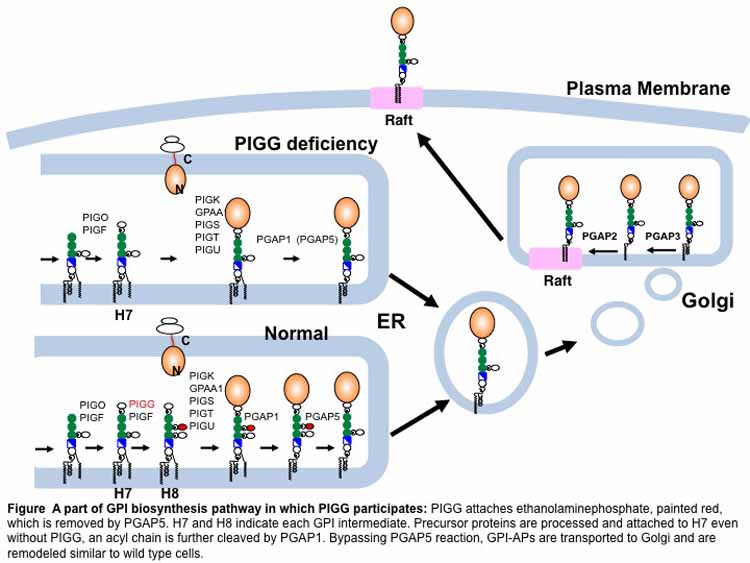Am J Hum Genet. 98(4):615-26 2016/04/07
GPI is a glycolipid that anchors over 150 various proteins to the cell surface. At least 27 genes are involved in biosynthesis and transport of GPI anchored proteins (GPI-APs). Recently, mutations in 13 of these genes were reported to cause inherited GPI deficiencies (IGDs). IGDs mainly show intellectual disability, epilepsy, coarse facial features and sometimes with multiple organ anomalies or hyperphosphatasia. Those symptoms were caused by the decreased surface expression of GPI-APs or by structural abnormalities of GPI. In this paper, we reported five affected individuals from three families, two consanguineous from Egypt and Pakistan and one from Japan showing severe intellectual disability, hypotonia and early onset seizures. PIGG is the enzyme that modifies the second mannose with ethanolamine phosphate, which is removed soon after GPI is attached to the protein. Physiological significance of this transient modification has been unclear. Using B lymphoblasts from affected individuals of families from Egypt and Japan, we revealed that PIGG activity was almost completely abolished; however the GPI-APs were normally expressed on the surface with the normal structure. The discovery of pathogenic variants in PIGG showed the importance of this step in neural development.
Links
- Home
- Achievement
- Research Activities
- Am J Hum Genet. 98(4):615-26 2016/04/07








